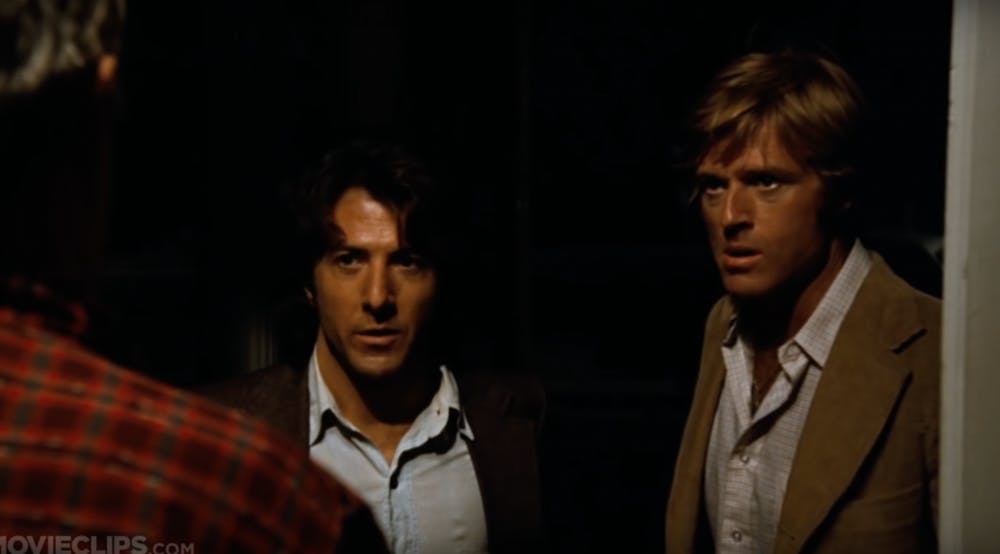In the midst of all the Oscar season hype about Steven Spielberg’s The Post, another movie springs to mind—1971’s All The President’s Men, the film about two journalists who uncover crucial details about the Watergate Scandal. It’s a classic among political thrillers, and the issues it explores of government surveillance and an antagonistic press–president relationship only make it more topical today.
All The President’s Men, the most well–known film in director Alan J. Pakula’s "paranoia trilogy," follows journalists Carl Bernstein and Bob Woodward as they uncover more and more information about the Nixon administration’s various cover ups and abuses of power. They eventually published their findings in The Washington Post.
Katherine Graham was The Washington Post’s publisher at that time (All The President’s Men is set a few months after The Post, where Meryl Streep plays Graham), but she does not appear in the film. Her only presence in the movie is as the butt of a sexist joke, despite her actual involvement in decision–making about Woodward and Bernstein’s story.
This, and the more general lack of female characters in All The President’s Men, is not reason in itself to condemn the movie—most of the people involved were in fact men, after all. The film is a masterful portrayal of events that changed the world.
But the world has changed even more since it was released. Today, Deep Throat's real identity is common knowledge. “-gate” is a common suffix used for any kind of scandal from debunked conspiracy theories to political elbowings to the NFL. Everyone is so used to the idea of the government spying on us that it’s become a meme so mainstream it has more than one Buzzfeed listicle dedicated to it (this last one is actually kind of worrying).
Most importantly, since All The President’s Men came out, women have more of a voice: in politics, in journalism, and in film. It was a woman, Liz Hannah, who wrote the screenplay for The Post after reading Katherine Graham’s autobiography. It was also a woman, the film’s producer Amy Pascal, who won the rights to the screenplay so it could get made.
The revelations of the #metoo movement and the continuing struggle of women with workplace sexual harassment and abuse in every industry remind us that there is still a long way to go for women in Hollywood, to put it mildly. The more female writers and producers (and directors—sorry Steven) there are, the more women in the industry will be able to help and protect each other, and the more meaningful roles there will be for women on screen. And that can’t be a bad thing.
‘The Post’ is playing in theaters now.

